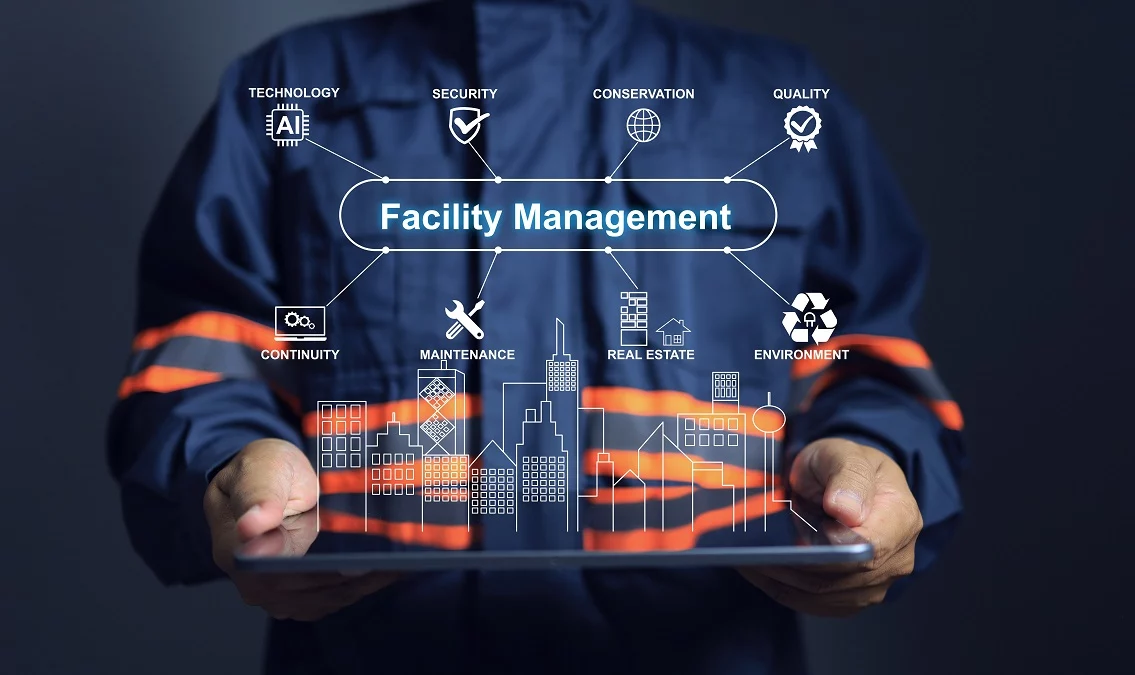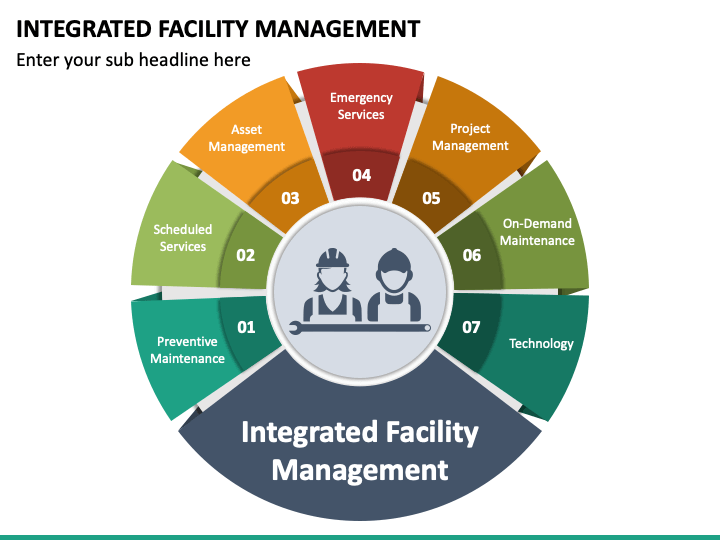Why Total Facility Management Is Necessary for Service Success
Total Facility Management (TFM) offers as a foundation for business success by balancing diverse functional elements such as upkeep, area utilization, and precaution. This integration not just enhances effectiveness but additionally lines up facility management with overarching business objectives. As services navigate an affordable landscape, understanding the complex benefits of TFM can be essential in driving cost effectiveness and improving worker productivity. Nevertheless, the effects of adopting TFM expand much past instant operational gains, increasing crucial questions concerning its long-term impact on business resilience and competitiveness - Total Facility Management. What exists under this important framework?
Understanding Total Facility Management
Total Facility Management (TFM) includes a detailed technique to taking care of a company's structures and linked solutions to make sure ideal performance, security, and effectiveness. TFM integrates different disciplines, including maintenance, operations, space management, and safety and security methods, to develop a cohesive framework that supports a company's core purposes.
At its core, TFM intends to improve the processes involved in facility management, enhancing and reducing redundancies solution distribution. This technique involves the coordination of tasks associated to property management, such as repair work, cleaning, and power management, to cultivate an effective atmosphere for stakeholders and employees alike. TFM additionally highlights the importance of applying finest practices and cutting-edge innovations to improve solution quality and lower operational prices.
Comprehending TFM requires acknowledgment of its tactical significance in supporting a company's objective. By aligning facility management activities with business goals, TFM boosts general efficiency while making sure compliance with health and wellness, safety, and ecological regulations. Therefore, TFM offers not only as a logistical feature but additionally as a tactical property, contributing to a company's long-term sustainability and growth. In recap, TFM is vital for developing a well-functioning atmosphere for service success.
Key Benefits of TFM
Leveraging a detailed strategy, companies that implement Total Facility Management (TFM) unlock a myriad of benefits that contribute to general service success. Among the key benefits of TFM is the improvement of functional performance. By settling facility solutions under a unified management framework, companies can simplify procedures, lower redundancies, and improve interaction throughout divisions.
In addition, TFM promotes a proactive maintenance strategy, which minimizes downtime and extends the lifespan of facilitiess and tools (Total Facility Management). This aggressive strategy not just improves efficiency however likewise fosters a safer working environment, ultimately leading to higher staff member satisfaction and retention prices
In addition, TFM promotes much better resource allotment by providing understandings right into facility performance metrics. Organizations can recognize locations for enhancement, allowing them to make informed choices that line up with their calculated objectives.
TFM and Expense Efficiency
Attaining expense efficiency is a basic objective for organizations, and Total Facility Management (TFM) plays an essential role in this endeavor - Total Facility Management. By incorporating various facility services under a single management structure, TFM makes it possible for organizations to streamline procedures and reduce redundancies. This all natural technique leads to substantial expense financial savings, as it gets rid of the demand for several vendors and simplifies purchase processes
Moreover, TFM promotes proactive maintenance strategies, which lessen the risk of expensive repairs and downtime. By prioritizing preventive steps, companies can extend the life-span of their assets and minimize unexpected expenditures. In addition, TFM incorporates power management practices, which can significantly reduce utility expenses via efficient resource use.
The centralization of information and analytics within TFM allows companies to make enlightened financial decisions. By determining fads and areas for enhancement, TFM makes it possible for customized techniques that additionally boost cost management. The scalability of TFM services makes sure that as companies expand, their facility management techniques remain efficient and aligned with financial goals.
Enhancing Worker Productivity
A well-managed facility can substantially enhance staff member performance by developing a helpful work environment. Effective Total Facility Management (TFM) makes certain that all facets of the office-- from lights and temperature level to tidiness and security-- are enhanced. When workers operate in a space that is comfortable and properly maintained, they are more probable to concentrate on their jobs, leading to higher output and work complete satisfaction.
Furthermore, TFM can enhance cooperation via the calculated style of communal locations, urging team effort and development. By investing in Continued the appropriate sources and innovation, organizations can facilitate smooth communication and streamline operations, additionally improving productivity. Normal maintenance and prompt feedbacks to facility concerns stop interruptions that could or else hinder efficiency.
Furthermore, a healthy and secure workplace, sustained by TFM practices, minimizes absenteeism and advertises well-being, straight correlating with raised productivity degrees. Eventually, prioritizing facility management is an investment not just in physical assets yet also in the labor force itself. By fostering a setting that supports employee demands and preferences, services can cultivate a much more involved and efficient labor force, driving overall success and competitive benefit.
Future Trends in TFM
Welcoming technical innovations is readied to reshape the landscape of Total Facility Management (TFM) in the coming years. As the need for efficiency and sustainability increases, TFM will increasingly adopt smart building technologies, integrating Internet of Points (IoT) tools to monitor and manage facility procedures in real-time. This change will certainly allow positive maintenance, considerably decreasing operational costs and boosting service shipment.

Sustainability continues to be an important emphasis, with TFM experts anticipated to focus on environment-friendly techniques. This includes using renewable resource sources and maximizing waste management systems to decrease the carbon impact of facilitiess.
Remote management capacities will certainly also be expanded, enabling facility supervisors to manage procedures from practically anywhere. This adaptability will become important as organizations adapt to hybrid work designs. In summary, the future of TFM is poised for change with innovation, sustainability, and improved functional methods, making certain organizations continue to be affordable in an advancing landscape.
Verdict
Finally, Total Facility Management is a vital element for accomplishing company success. By integrating various functional features, TFM improves effectiveness and aligns facility management with business goals. The resulting cost savings, boosted staff member efficiency, and safer workplace add substantially to overall performance. As organizations progressively embrace lasting techniques and ingenious technologies, the learn this here now relevance of TFM will remain to expand, guaranteeing long-term functional efficiency and competition in a progressing marketplace.
